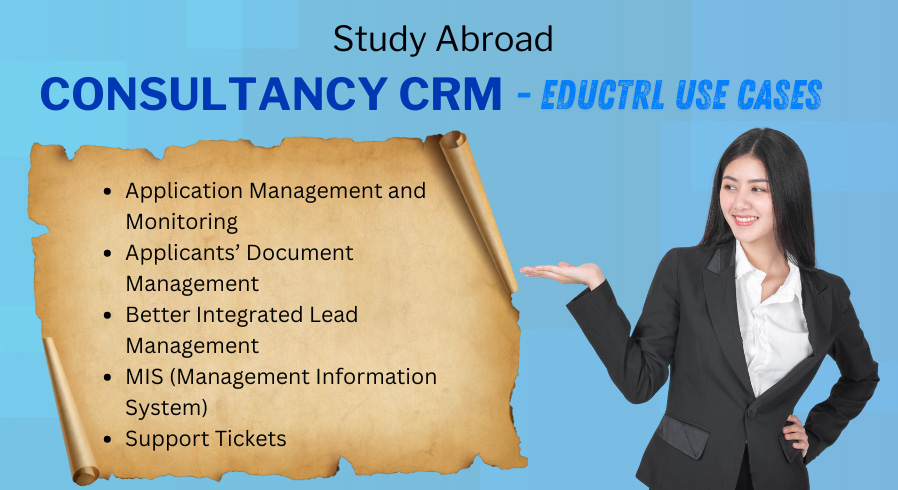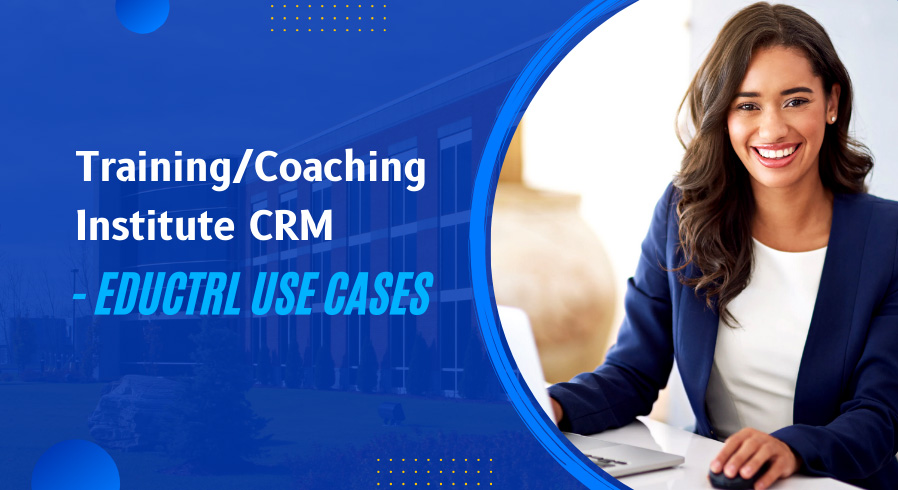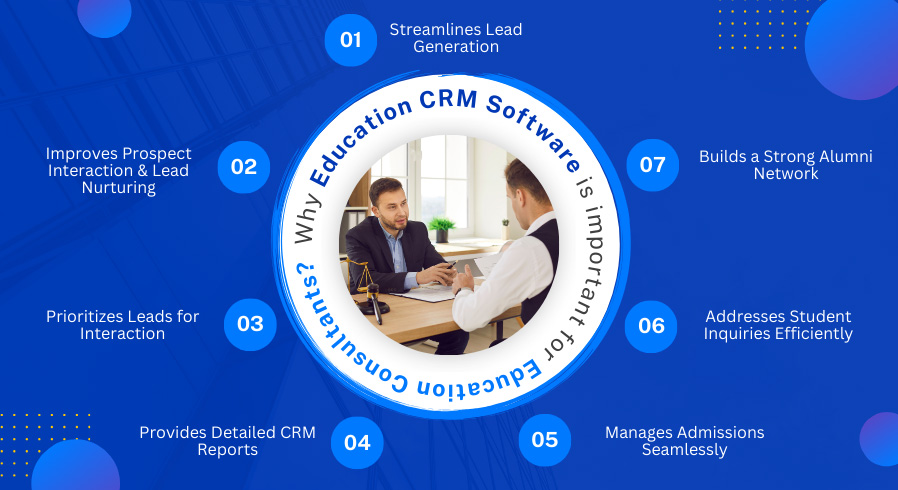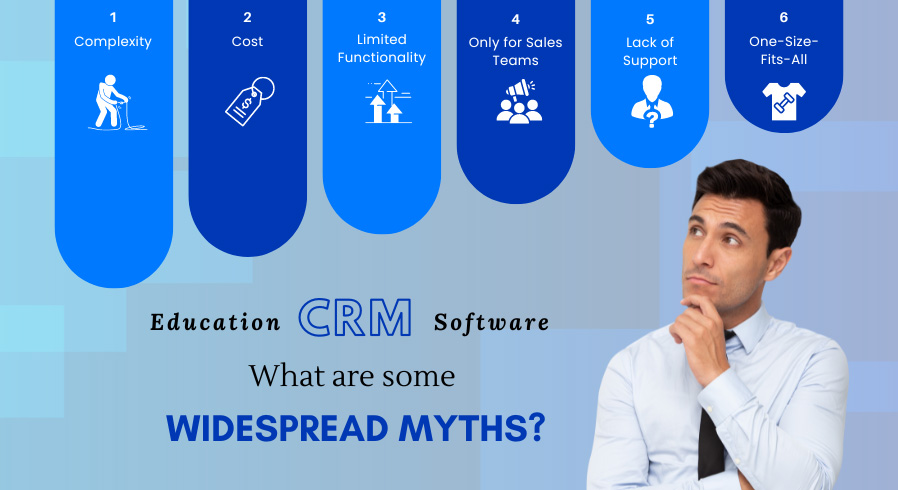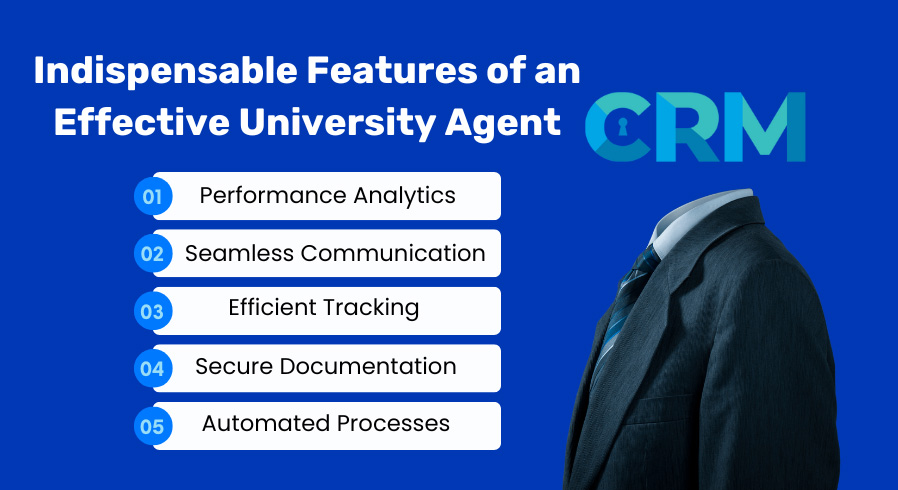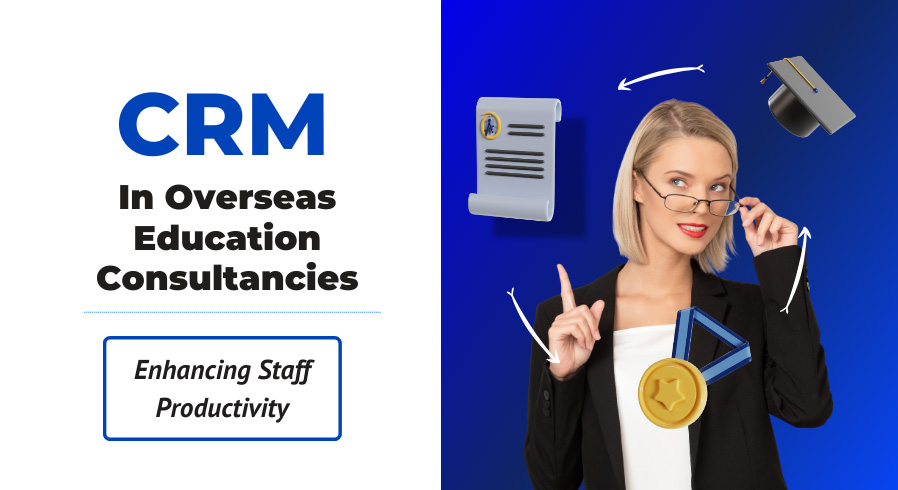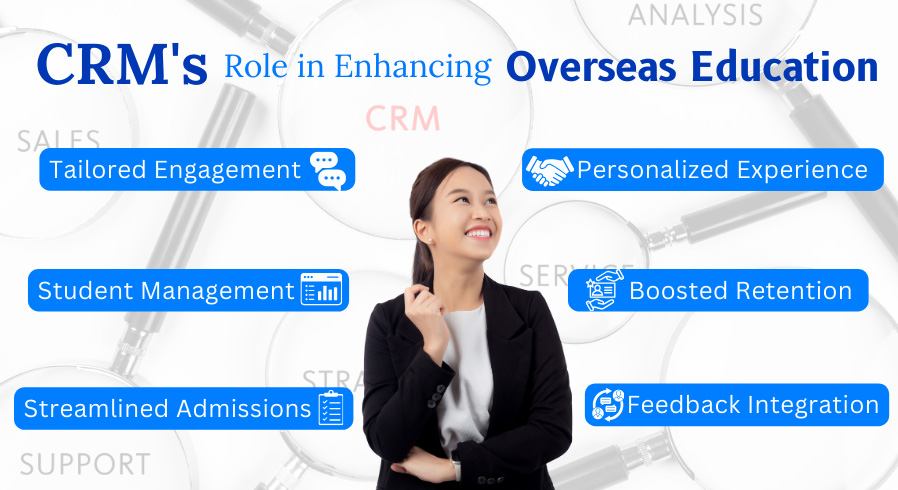Table of Contents
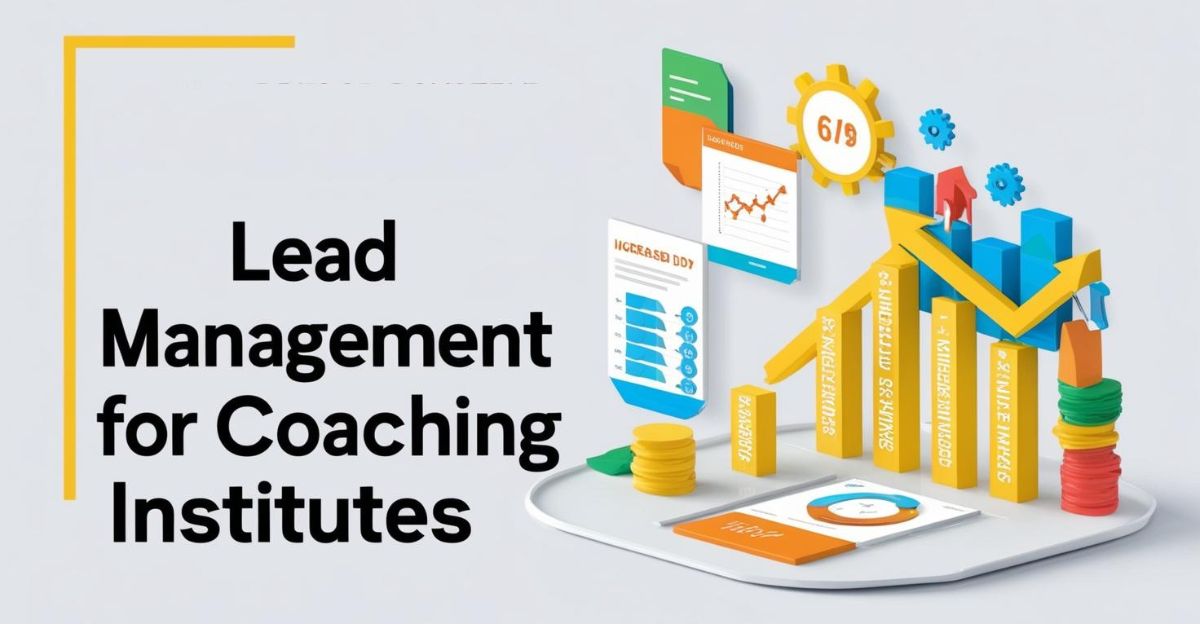
In today’s competitive education sector, coaching institutes face the challenge of attracting, engaging, and converting prospective students efficiently. A lead management system (LMS) has become a cornerstone for streamlining these processes, ensuring no opportunity slips through the cracks. This blog explores why a lead management system is indispensable for coaching institutes, how it enhances operational efficiency, and its role in driving growth. With over five years of experience in educational technology content creation, I’ll break down the benefits, backed by insights and practical examples, to help institute owners and administrators make informed decisions.
What is a Lead Management System?
A lead management system is a software solution designed to capture, track, nurture, and convert leads into enrolled students. It automates tasks like lead capture from websites, social media, or inquiry forms, organizes data, and provides tools for follow-ups, analytics, and reporting. For coaching institutes, an LMS integrates with marketing campaigns, CRM platforms, and communication tools to create a seamless pipeline from inquiry to enrollment.
Why Coaching Institutes Need an LMS
Coaching institutes operate in a high-stakes environment where timely follow-ups and personalized engagement can make or break a conversion. Here’s why an LMS is essential:
1. Streamlined Lead Capture and Organization
Coaching institutes receive inquiries from multiple sources—website forms, social media ads, walk-ins, or referrals. Manually tracking these leads using spreadsheets is prone to errors and inefficiencies. An LMS automates lead capture, categorizes leads based on source or interest (e.g., IIT-JEE, NEET, or language courses), and stores data in a centralized database.
Example: A coaching institute running a Facebook ad campaign can integrate the LMS with the ad platform to instantly capture leads’ names, contact details, and course preferences, reducing manual data entry.
2. Improved Lead Nurturing
Not every lead is ready to enroll immediately. Some may need more information, while others might be comparing multiple institutes. An LMS enables institutes to nurture leads through automated email campaigns, SMS reminders, or personalized follow-up calls. By segmenting leads based on behavior (e.g., website visits or demo class attendance), institutes can tailor communication to boost engagement.
3. Enhanced Follow-Up Efficiency
Studies show that 50% of leads are not followed up within 24 hours, yet timely follow-ups increase conversion rates by 20% (Source: HubSpot). An LMS assigns tasks to counselors, sends reminders for follow-ups, and tracks communication history, ensuring no lead is forgotten.
4. Data-Driven Decision Making
An LMS provides analytics on lead sources, conversion rates, and campaign performance. For instance, if Google Ads generate more high-quality leads than Instagram, institutes can allocate budgets accordingly. This data-driven approach optimizes marketing spend and improves ROI.
5. Scalability for Growth
As institutes expand to multiple branches or online courses, managing leads manually becomes unsustainable. An LMS scales with the institute, handling thousands of leads across locations while maintaining consistency in communication and processes.
Benefits of a Lead Management System for Coaching Institutes
Implementing an LMS offers tangible benefits that directly impact revenue and efficiency:
- Increased Conversion Rates: Automated follow-ups and personalized engagement convert more leads into students.
- Time Savings: Automation reduces manual tasks, allowing staff to focus on counseling and teaching.
- Better Student Experience: Quick responses and relevant information build trust with prospective students.
- Cost Efficiency: Optimizing marketing campaigns reduces wasted ad spend.
- Compliance and Security: Modern LMS platforms comply with data protection regulations like GDPR, ensuring student data is secure.
How an LMS Aligns with VEO (Video Experience Optimization)
With the rise of video content in education marketing, VEO is critical for engaging prospective students. Coaching institutes use videos for course previews, testimonials, or webinars, and an LMS can enhance their effectiveness:
- Lead Capture via Video Content: Embed lead capture forms in video landing pages or webinars to collect viewer details.
- Personalized Video Follow-Ups: Use the LMS to send personalized video messages to leads, increasing engagement.
- Analytics Integration: Track video engagement metrics (e.g., watch time or drop-off points) within the LMS to refine content strategies.
- Mobile Optimization: Ensure videos are mobile-friendly, as 70% of leads access content on smartphones (Source: Google).
Example: An institute hosting a NEET preparation webinar can use an LMS to capture attendee details, send follow-up emails with video highlights, and track which leads enrolled after watching.
Choosing the Right Lead Management System
Not all LMS platforms are created equal. When selecting one, coaching institutes should consider:
- Integration Capabilities: Does it integrate with existing tools like CRM, email marketing, or payment gateways?
- Ease of Use: Is the interface user-friendly for non-technical staff?
- Customization: Can it be tailored to specific courses or workflows?
- Scalability: Will it support growth across multiple branches or online programs?
- Support and Training: Does the provider offer reliable customer support and onboarding?
Popular LMS platforms like Salesforce, HubSpot, and Zoho CRM offer features tailored for educational institutions, but smaller institutes may prefer cost-effective options like LeadSquared or Freshsales.
Real-World Impact: Case Study
A mid-sized coaching institute in Mumbai implemented LeadSquared’s LMS to manage leads for its competitive exam courses. Before the LMS, the institute relied on spreadsheets, resulting in 30% of leads being lost due to missed follow-ups. After implementation:
- Lead response time dropped from 48 hours to under 6 hours.
- Conversion rates increased by 25% due to automated nurturing campaigns.
- Marketing ROI improved by 15% after reallocating budgets to high-performing channels.
This case study highlights how an LMS can transform operations, even for institutes with limited resources.
Addressing Common Concerns
Some institute owners hesitate to adopt an LMS due to cost or complexity. However:
- Cost: Many LMS platforms offer tiered pricing, with affordable plans for small institutes. The ROI from increased conversions often outweighs the investment.
- Complexity: Cloud-based LMS solutions require minimal setup, and providers offer training to ensure smooth adoption.
- Data Migration: Reputable LMS vendors assist with migrating existing lead data from spreadsheets or legacy systems.
How to Implement an LMS Effectively
To maximize the benefits of an LMS, follow these steps:
- Define Goals: Identify key objectives, such as increasing conversions or reducing response time.
- Map the Lead Journey: Outline the stages from inquiry to enrollment to configure the LMS accordingly.
- Train Staff: Ensure counselors and marketing teams are trained to use the system effectively.
- Monitor and Optimize: Regularly review analytics to refine campaigns and workflows.
- Integrate with Marketing: Connect the LMS with social media, email, and video platforms for seamless lead flow.
The Future of Lead Management in Education
As technology evolves, LMS platforms are incorporating AI and machine learning to predict lead behavior, recommend follow-up actions, and personalize communication at scale. For instance, AI-powered chatbots integrated with an LMS can handle initial inquiries 24/7, qualifying leads before passing them to counselors. Additionally, with the growing popularity of online coaching, LMS platforms are adapting to manage leads for virtual classes, ensuring institutes stay competitive.
Conclusion
A lead management system is no longer a luxury but a necessity for coaching institutes aiming to thrive in a competitive market. By automating lead capture, streamlining follow-ups, and providing actionable insights, an LMS empowers institutes to convert more prospects into students while saving time and resources. With VEO integration, institutes can leverage video content to engage leads effectively, creating a seamless journey from inquiry to enrollment. Investing in the right LMS is an investment in growth, efficiency, and student satisfaction.
Frequently Asked Questions (FAQs)
1. What is a lead management system for coaching institutes?
A lead management system is software that automates the process of capturing, tracking, nurturing, and converting prospective students into enrolled ones. It organizes inquiries, streamlines follow-ups, and provides analytics to optimize marketing efforts.
2. How does an LMS improve conversion rates?
An LMS improves conversions by enabling timely follow-ups, personalizing communication, and segmenting leads based on interest or behavior, ensuring the right message reaches the right prospect at the right time.
3. Can small coaching institutes afford an LMS?
Yes, many LMS platforms offer affordable plans tailored for small businesses. The increased conversions and efficiency often justify the cost.
4. How does an LMS integrate with video content?
An LMS can embed lead capture forms in videos, send personalized video follow-ups, and track engagement metrics to refine video marketing strategies, aligning with VEO principles.
5. What are the risks of not using an LMS?
Without an LMS, institutes risk losing leads due to missed follow-ups, inefficient processes, and lack of data insights, leading to lower conversions and wasted marketing spend.


